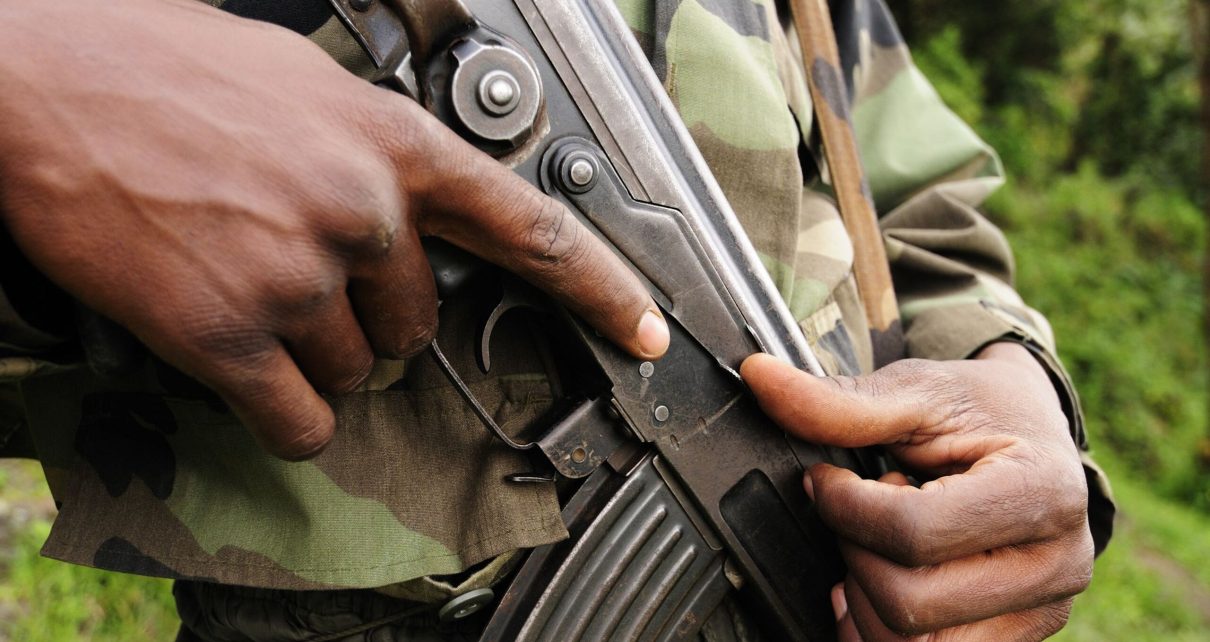
Every state in Nigeria should have its own ‘Amotekun’. That ought to be clear now to anyone desirous of ending the carnage by an assortment of violent gangs in the northern states. Before the creation of Amotekun, bandits and kidnappers were running riot in the Southwest, killing people at will and collecting ransom from the families of those abducted. They moved from state to state through the forests. When the security agencies chased them in Ekiti, they showed up in Ondo or Osun; if Kwara became too hot for them, they relocated to Oyo or escaped to Benin Republic only to re-emerge in Ogun.
The only way to defeat them was to mount a concerted operation involving all the southwestern states so that there would no longer be any safe haven for the beasts. That was what the governors of the zone did — and for which they were vilified by the myopic, some of who alleged that the creation of the security outfit was a secessionist ploy
Today, with the horrors playing out in the North which came to a head on December 6, 2021, with the roasting of 43 passengers in a bus by armed bandits who stood guard over the bus to ensure the complete incineration of the human cargo of men, women, children and babies. That was the limit.
Governor Aminu Tambuwal was inconsolable. He blamed the anomie in his state on the dislodgement of bandits from neighbouring Zamfara State. He lamented that the military decided to take on bandits in Zamfara without simultaneous operations in surrounding states, leaving room for the criminals to migrate to Sokoto with vengeance. “The timing and way the operation was carried out left Sokoto very vulnerable”, noted Tambuwal.
We are going through the greatest security challenge facing Nigeria since its flag independence from Britain in 1960. The civil war of 1967-1970 was largely localised to the southeast of the country. The current war being waged directly against Nigerians by bandits, Boko Haram, regular highway robbers and a coterie of other armed groups, is not just unprecedented in terms of brutality but also in scope. Every local government in Nigeria has felt the evil vibration of terror. A pandemic of insecurity has broken out. Nowhere is safe anymore. And nowhere is more unsafe in Nigeria right now than the North.
Had the National Assembly lived up to its billing, an emergency amendment to the constitution to create state police would have been a fait accompli by now. But we operate a system where the legislature first studies the body language of the Executive before making any move.
In November alone, six people were killed in an attack on Gwarjo community in Matazu Local Government Area of Katsina State while two of the 66 worshipers abducted from Emmanuel Baptist Church, Kakau Daji, Chikun Local Government Area of Kaduna State were shot dead .A retired Air Vice-Marshal, Muhammad Maisaka, was killed by gunmen at his residence in Ragasi, Igabi LGA of Kaduna. Armed bandits killed at least seven Mobile Police officers during an ambush on the Magami – Gusau Road in Zamfara State. In the same state, bandits killed 13 people, wounded eight and abducted at least 17 others in an attack on Batsari town while another group of bandits killed six persons and abducted many others during an attack on Rijiya village in Gusau LGA. A village head and eight others were killed in Tungar Ruwa in Anka LGA. Southern Kaduna and Zaria highways have become killing fields.
Other parts of the country are groaning too, even if their problem is not as serious as the North’s.
In the Southeast, at least five people were killed in Anara, Isiala Mbano Local Government Area of Imo State when unknown gunmen attacked the community. In Taraba State, at least 15 people, including three housewives, were killed at Binnari and Jab villages in Karim Lamido Local Government Area. In Benue State, gunmen killed at least four mourners during a funeral ceremony in a rural village at Mbayatyo Mbater council ward of Logo Local Government Area. The Southwest has been relatively quiet since the Amotekun corps started full operations.
Frustrated northern women, famed for stoic taciturnity, have taken to social media to vent their anger at the government for its inability to stem the tide of insecurity. Breaking historic cultural barriers which had hitherto consigned certain discussions to the realm of taboo, the several women have tearfully come out to confess that they had been raped by the terrorist beasts. One of the victims, a grandmother, said she was raped by eight teenagers, the youngest among whom couldn’t have been more than 13 years old! Some wounds will never heal!
The terror unleashed by Boko Haram and its ISWAP allies over the years is just about to take second place to the Stone Age massacre perpetrated by the mindless bandits in the North. This is quite a remarkable thing to say, considering that ISWAP recently killed Nigerian Army’s Brigadier-General Dzarma Zirkusu and three of his soldiers in a fierce encounter in Borno.
In terms of making life unsafe in both urban and rural areas; preventing farming activities, thereby exacerbating the food supply problem in the country; collecting taxes and protection fees from anyone engaged in economic activities; and making commuting from place to place a life-and-death affair, the bandits are peerless.
The Zamfara State government in a 2019 report, stated that between 2011 and 2019, bandits killed at least 6,319 people, kidnapped 3,672 victims and set more than 500 villages ablaze in Zamfara State alone. They have also displaced more than 200,000 people, also forcing more than 35,000 indigenes to emigrate to the Niger Republic. Data analysts monitoring the destruction of lives and property going on in the North have now reached one alarming conclusion: Bandits were responsible for and were reportedly responsible for 47.5 per cent of all violent deaths in 2019, killing more Nigerians than Boko Haram, ISWAP, kidnappers, highway robbers, unknown gunmen and cultists put together. And that is saying something!
Welcome to Reality Street. It used to be fashionable to tar anyone highlighting the insecurity in the country and proffering solutions to the problem. That is now a luxury we cannot afford. We now have to reason together so that we can survive together instead of perishing together. The government is overwhelmed. The security forces need new ideas. I have said before that war is too important to be left to soldiers alone. We know that we, the people, can out-think the bandits and Boko Haram/ISWAP and all the other non-state armed groups put together.
Protesters against insecurity in the land who were brutalised in Abuja last week are not the problem with Nigeria. If defenceless citizens cannot protest their pain, what kind of country exactly are we building? If we drive protests underground, that is where revolutions are waiting to be born.
As a first step to resetting our compass and lifting the dark clouds, perhaps we should be asking a few questions and making suggestions on the way out of the present morass?
NATIONAL ASSIGNMENT
- Whatever happened to the case of the 15 containers of arms and armaments illegally imported by an Iranian in 2010? (Remember, the107mm artillery rockets can accurately hit targets more than 8.5 kilometres away with a 40-foot killing radius).
- What happened to the list of Nigerian sponsors of terrorism handed over to our government by the UAE authorities?
- Do we expect the international community to treat us with respect with the way we bury cases of corruption and shield prominent suspects wanted by US investigators?
- We should carry out a comprehensive audit of all monies spent on arms and armaments in the last decade.
- The President should take another peep at the file of Executive Outcomes or any other such body on his radar.
- States should immediately set up security outfits incorporating local hunters and traditional institutions. The so-called community policing of the federal police is useless in the fight against terror.
- Going forward, we should replace the Almajiri system with responsible parenting and compulsory free primary education. All the states of the North must set up skill acquisition centres to train the youths. When security returns to the land, cottage industries will follow in tow.
For SAM
One year after, the crowd still gathered, the testimonies re-echoed with love and adulation, tears still flowed; but all in all, to the glory of God, it was clear that the house that Sam Nda-Isaiah built has endured and will continue to stand. God rest his valiant soul!
- (Wole Olaoye is a Public Relations Consultant and veteran journalist. He can be reached at wole.olaoye@gmail.com, twitter: @wole_olaoye; instagram: woleola2021; LinkedIn: www.linkedIn.com/in/wole-olaoye)



